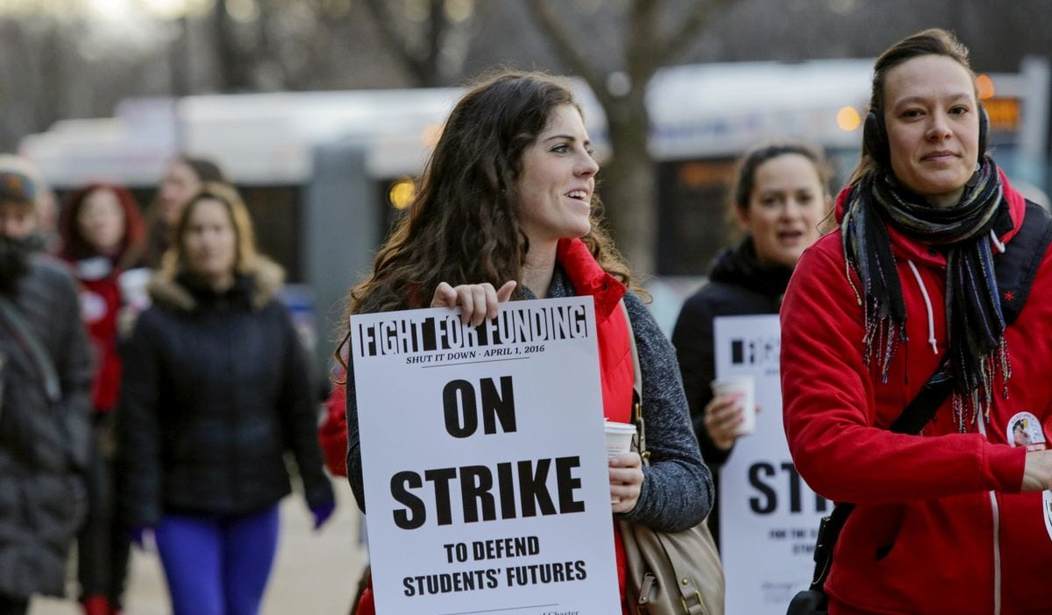It’s contract time again for teachers in Chicago and that means one thing: Strike!
The teachers want more pay for less work — a lot more pay. They are demanding a 15 percent increase in salary over three years. They are also demanding more union members be hired by schools.
Though the union and the district aren’t on the same page with compensation — the union has rejected the city’s offer of 16% base-pay raises over five years, asking instead for 15% over three years — union leaders have also stressed demands related to staffing, class sizes and prep time. They want nurses, social workers and librarians in every school, and more special education classroom assistants and case managers, and they want it all in the contract.
They don’t want much, do they?
Chicago teachers are already earning more than teachers in any other big city.
CPS has the highest maximum salary for teachers with a bachelor’s degree, as well as the highest maximum salary for teachers with a master’s degree, when compared to school districts in the nation’s 10 largest cities for which data was available and adjusted for cost of living, according to the Teacher Contract Database of the National Council on Teacher Quality. They come in second, behind San Antonio Independent School District, for base salary of new teachers with bachelor’s degrees and master’s degrees.
CPS has the highest average salary among school districts in 10 of the nation’s top 13 largest cities – comparable data was not available for three of the cities – when adjusted for cost of living.
Last spring, Illinois changed the way it funds public schools and the teachers’ eyes lit up. More money, right? Not quite:
CTU contends CPS is capable of paying for the cost of its demands because of some increases in funding, such as state revenue sharing. CPS, however, has already included state revenue sharing in its budget projections, leaving no room for higher costs. It further explains that despite some increases in funding, it remains in an overall negative cash position and must borrow on a short-term basis to meet day-to-day obligations. It does not have a surplus of revenue to pay for CTU’s salary demands.
Indeed, CPS’ history of mismanagement and poor financial decisions has led to excessive borrowing and a “junk” credit rating. Its debt has quadrupled since 1998, with current debt at over $8 billion.
The district is also forced to allocate hundreds of millions of dollars each year to the Chicago Teachers Pension Fund after multiple years of making inadequate contributions.
Union demands would cost more than $1.1 billion over three years for salary increases and extra staff and community schools, compared to $216 million for Mayor Lori Lightfoot’s proposal. CPS is simply not in a position to meet these demands
Quite simply, CPS is tapped out. And yet, the teachers don’t care because they know they have the whip hand. Tens of thousands of angry parents will inundate the CPS switchboard with calls demanding they give the teachers what they want if they strike. And history shows that the teachers will not relent until they get it all.
This may be the most militant public union in the U.S. They have been preparing for this strike almost since the last one was settled in 2015. Then, the strike lasted 10 days. How long it will go this time will depend on how pliant the CPS negotiators will be.










Join the conversation as a VIP Member